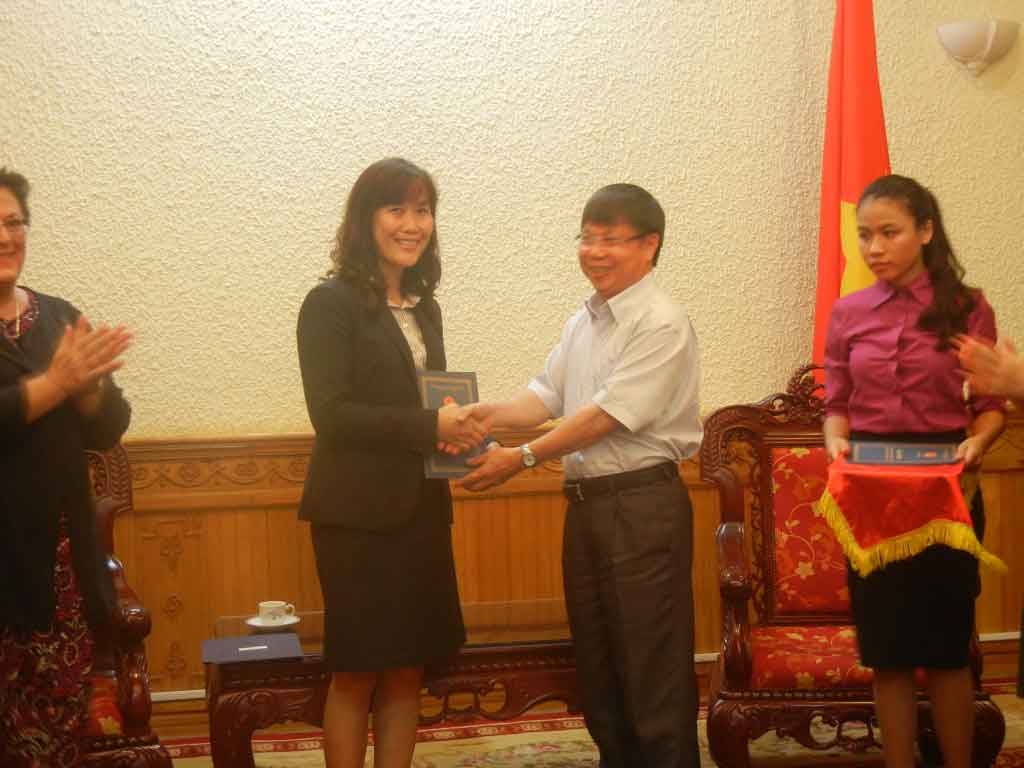Last April, several Holt supporters traveled to Korea to see our work and meet the children, families, single mothers and others we serve in the country where Holt was founded. After visiting the Jeonju Babies’ Home — a temporary care center for young children waiting to reunite with their families — they felt inspired to do more.
One boy was the son of a refugee. Another, a little girl, witnessed her father die tragically. Some are the children of single mothers who struggle with the stigma of unwed motherhood and the financial and social barriers it creates. Others come into care because their parents lost jobs. Or homes. Or each other.
Children in care at the Jeonju Babies’ Home in Korea all have a unique story to tell. But for all of them, the ultimate goal is the same — to one day go home.
“The goal of the babies home is to keep families together,” says Paul Kim, Holt’s director of programs in Korea. Some children stay for a week. Others stay for years. Some of their parents may choose to relinquish them for domestic adoption. But most will eventually rejoin their birth families, once they have overcome whatever caused them to place their child in care in the first place.
Since 1981, Holt International and Holt Korea have operated the babies’ home as a haven for families in crisis — a place where they can bring their children for temporary care and support while they work to get back on their feet. While Holt Korea manages the babies’ home, Holt International finds sponsors for every child in care to help provide food, clothing and other basic necessities. With the support of their sponsors, the children at Jeonju have everything they need to thrive while they wait to rejoin their birth families, or if that’s not possible, to join a loving adoptive family in Korea.
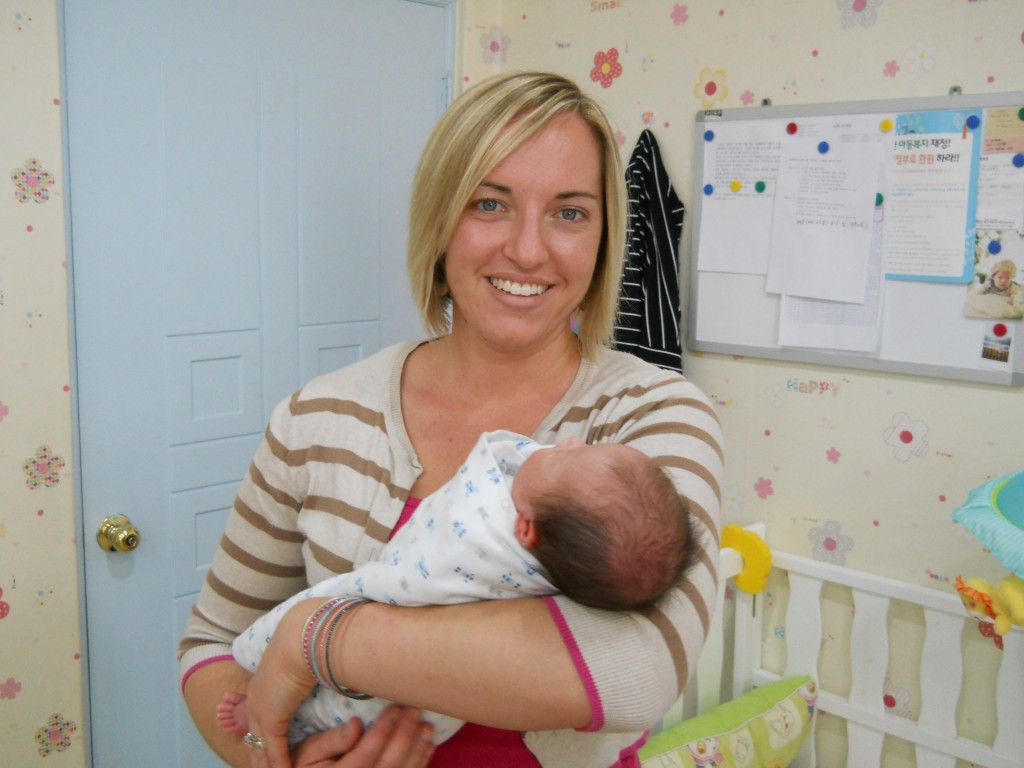
In early June, several Holt staff members traveled to the city of Jeonju, south of Seoul, to visit the children and see the babies’ home. As we walked through the doors, a 3-year-old boy named Jae* ran up to an older man in our group — calling him “Hadabuhjee,” or “Grandpa.” A shyer girl with pigtails stood peering from a doorway, while two others played in the stairwell, climbing backwards, crab-walk style, up the staircase — a young caregiver in tow.
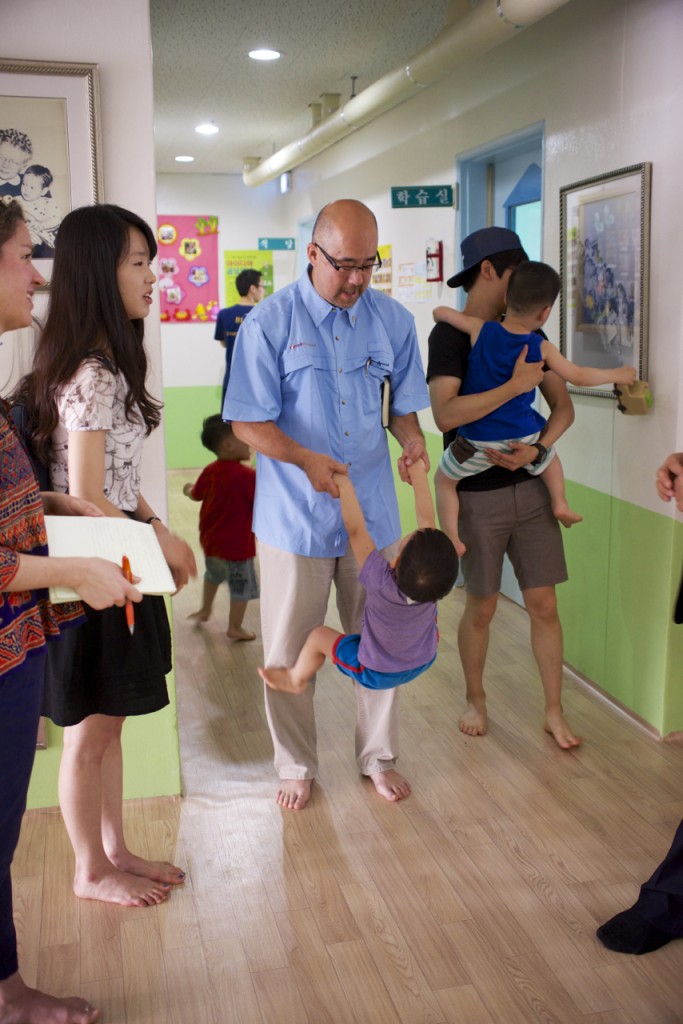
As we toured the building, Jae trailed along — holding tight to the hand of our vice president of marketing. While many of the children in care at Jeonju come from two-parent households in crisis situations, Jae is the son of a single mother. In South Korea, where disapproving attitudes toward single mothers are so strong and pervasive that both mothers and their children struggle to overcome discrimination in every facet of their lives, this alone can create a state of crisis. For mothers who have chosen to raise their children — but can’t yet support them on their own — the Jeonju Babies’ Home is a safe place they can bring their child for short or long-term care.
“One thing that really struck me is that the children can be brought there and stay without fear of the parents losing custody,” says Sherry Johnson, a Holt supporter who traveled to Jeonju in April as part of a different Holt team trip. Sherry traveled with several other Holt supporters interested in learning more about our work and history in Korea, including Holt adoptive mom Dawn Morley and her 9-year-old daughter, Maria — adopted from Korea — and Sherry’s daughter, Ashley Bawl.
“It’s great that they can bring their kids there while they get their lives together,” says Ashley, a young mother of one from Missouri.
During our visit, the director shared that Holt Korea and the Jeonju Babies’ Home have the same vision — “Love in Action.” They uphold their vision in both their care for the children and their efforts to reunite children with their families. “This is not a place where children simply come to stay,” Paul explains. “The director and social workers play an active role in counseling birth families. They encourage them to visit often and take them home over the weekend.” They also work closely with the families to find resources in the community that will help them get back on their feet.
“The Jeonju staff work so hard to maintain contact and a connection between the parents and the child,” Paul says, “all so they can bring their children back home as soon as possible.”
“The Jeonju staff work so hard to maintain contact and a connection between the parents and the child, all so they can bring their children back home as soon as possible.”
Paul Kim
As we walked from room to room at the babies’ home, it became apparent that their vision is imbued in every part of their work — even within the facilities themselves. Much of the structure is built in special organic wood as some of the children have skin sensitivities. The rooms are immaculately clean, softly lit, and painted in bright blues and greens or covered in pictures of Disney princesses. Lined against the walls in the playroom are rows of tricycles and rocking chairs, shelves full of children’s books, a toy kitchen and a karaoke machine. When we step into the room for 10-month-olds, classical music plays softly as the babies nap in their cribs. Caregivers hold the one or two who are awake — clucking lovingly in their ears.
“We really want to make it like a home,” says the operations director, a soft-spoken man with smile lines surrounding his eyes.
“The babies’ home was really, really touching,” Sherry says of their visit in April. “We spent time with the babies in the nursery. Four people were caring for five babies on the day we visited. The nursery was extremely well organized. They had charts on the wall to track the babies’ feeding and their bottles… Everything was extremely clean and smelled good.”
For Dawn Morley, the visit touched her in two unique ways — as an adoptive mom, and as a Holt child sponsor.
“I’ve probably been a Holt sponsor for 30 years, my husband for 20,” Dawn says. “Even when you know what things the money purchases when you sponsor a child — even as the mother of an adoptee — when you see it, you have a deeper understanding of the work.”
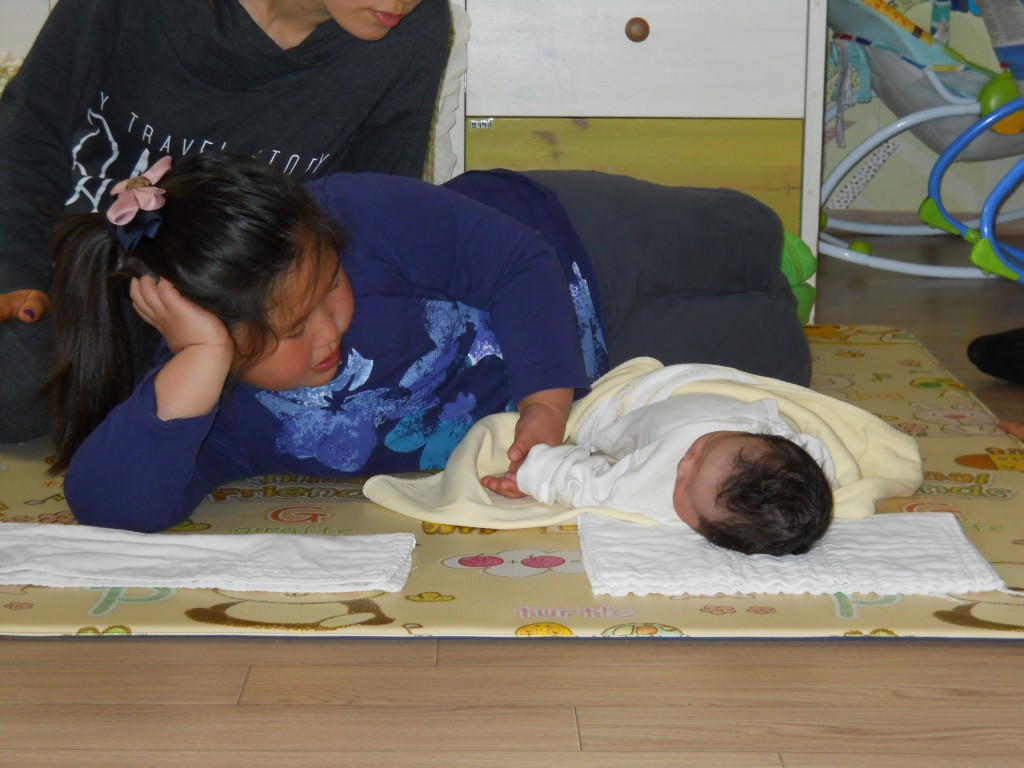
Through the years, Holt International has helped to renovate the babies’ home. Currently, Holt is working to provide capital to repair the roof, replace doors and windows, and build a cold storage to allow staff to buy in bulk, keeping costs down. During their visit, the April Korea team noticed another area in need of repair.
“The laundry facility didn’t fit with the rest of the home,” Ashley says. “It was leaking water out of the floor, and in desperate need of updates.”
As Paul explains, the babies’ home uses cloth instead of disposable diapers, which are uncommonly expensive in Korea. For many years, the staff would boil dirty clothing, diapers and burp rags in kettles and wash them all by hand. Although Holt later helped them to purchase three washing machines, they have aged quickly from constant use.
“Their washers and dryers are running 24/7 to keep everything laundered,” Sherry says. “To me, it seemed that of all the places we visited, it had more needs than some of the others.”
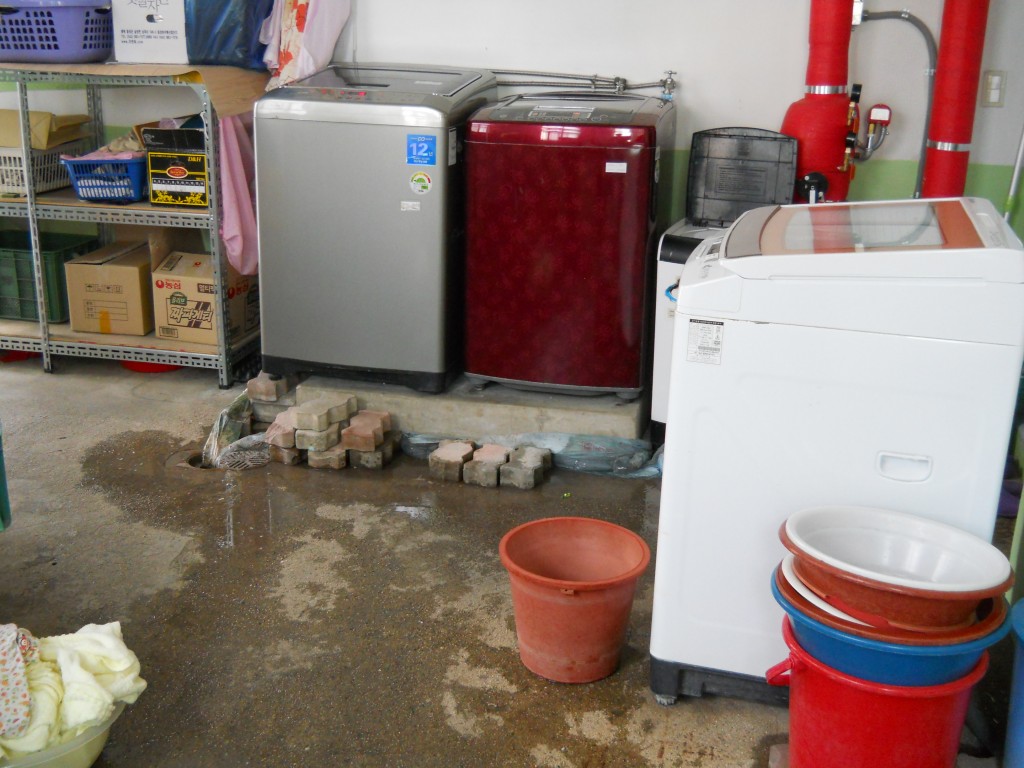
After seeing the need, Sherry and her fellow travelers decided to take on the laundry room as a team project. To date, the April Korea team has raised more than $7,000 to put toward purchasing commercial-grade washers and renovating the room. The room will need additional wiring and plumbing for drainpipes, Sherry says, as well as dryers to accommodate larger loads. Other families who were unable to join the April Korea trip have also contributed additional funds toward the renovation project.
“What makes these gifts that much more meaningful is that for them as parents, they more than anyone can understand the daunting task of trying to keep up with laundry for 50 children,” Paul says of the April Korea team. “Every time I have had the opportunity to speak with the staff at Jeonju, they have expressed their great appreciation for these amazing gifts.”
For the April Korea team, traveling to Korea and visiting the Jeonju Babies’ Home helped to affirm why they support Holt — or in the case of new supporters Ashley and Sherry, why they should.
“It’s always focused on the kids.”
For Ashley, the trip clarified what Holt is all about. “I think the biggest thing, just after seeing all the different places Holt works and what they do, hearing the story of the Holts, when it started and how and why, I felt that it has never lost its intention. Never lost its purpose. It’s always focused on the kids.”
At Jeonju, that became abundantly clear. “It seems strange that a place where kids stay apart from their families would have the sole goal of family integrity,” Paul reflects. “But the sole wish of the babies’ home is for children to have a happy and loving life in the care of their birth families.”
* name changed
Join our effort to ensure children can remain in the loving care of their birth families, whenever possible. Support our family strengthening campaign!
Learn more about our efforts to strengthen families in Korea!
